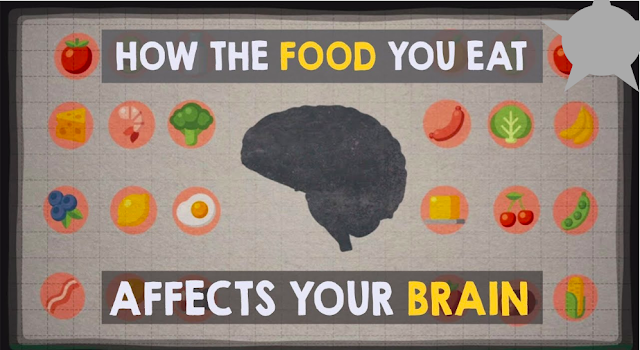Food on Your Mind What would your brain look like if you took all the moisture out of it and analysed the nutritional makeup of it?
Your dehydrated brain would primarily be made up of lipids, generally known as fats. You would discover proteins and amino acids, traces of micronutrients, and glucose in the brain tissue that is still present. Of fact, the brain is more than the sum of its nutritional components, but each one does have a unique effect on functioning, growth, mood, and vitality. Therefore, the apathy you may experience after lunch or the alertness you may experience late at night may just be the result of the effects of food on your brain.
Omegas 3 and 6 are the two most important types of fat in your brain. We must get these necessary fatty acids from our meals since they have been related to preventing degenerative brain diseases. Therefore, eating foods high in omega-3 fatty acids, such as nuts, seeds, and fish, is essential for the development and upkeep of cell membranes. Omega-3 fatty acids are beneficial for your brain, however trans and saturated fats should be avoided over the long term because they can harm your brain’s health. Proteins and amino acids, which are the foundational nutrients for growth and development, control how we feel and act. The building blocks of neurotransmitters, the chemical messengers that transmit messages between neurons and have an impact on things like emotion, sleep, focus, and weight, are found in amino acids.
They’re one among the reasons we might feel at ease after consuming a substantial amount of pasta or more alert following a meal high in protein. Food’s various chemical compositions can promote the release of mood-altering norepinephrine, dopamine, and serotonin from brain cells. However, accessing your brain cells is challenging, and amino acids must contend for a small amount of access. A varied diet prevents your mood from being skewed in either direction and helps maintain a balanced blend of brain messengers. Similar to the other organs in our body, the health of our brains depends on a continual stream of micronutrients. Fruits and vegetables include antioxidants, which support the brain’s ability to fight off free radicals and preserve brain cells for a longer amount of time. Additionally, our brains would be vulnerable to brain disease and mental decline in the absence of potent micronutrients such the vitamins B6, B12, and folic acid. The health of the brain and the early stages of cognitive development also depend on trace levels of the minerals sodium, copper, zinc, and iron.
The brain needs fuel, and lots of it, in order to effectively transform and synthesis these important nutrients. Even while the average human brain only accounts for 2% of our body weight, it can consume up to 20% of our energy. The majority of this energy is derived from carbs, which our body breaks down into blood sugar or glucose. One of the main indicators of nutrient shortage is a change in mental function since the frontal lobes are so sensitive to reductions in glucose.
How does the precise sort of carbs we eat impact our brains, assuming we are obtaining glucose on a regular basis?
The three types of carbohydrates:
1- Starch
2- Sugar
3- Fibre
The ratio of the sugar and fibre subgroups to the total quantity influences how the body and brain react, even though on most nutrition labels, they are all combined into a single total carb count. A food with a high glycemic index, such as white bread, induces a quick release of glucose into the blood, followed by a dip. Our attention span and temperament also suffer when our blood sugar levels drop.
Oats, cereals, and legumes, on the other hand, have slower glucose release, allowing for a constant level of alertness. Choosing a varied diet of nutrient-rich foods is essential for maintaining brain capacity. Your decisions regarding what you bite, chew, and swallow have an immediate and enduring impact on the most potent organ in your body.
Related Searches:
how the food you eat affects your brain essay, how the food you eat affects your brain ted talk summary, how the food you eat affects your brain transcript, how the food you eat affects your brain brainly, how does eating healthy affect your body, how the food you eat affects your brain quizlet.
List of Tags:
Food for thought, brain food, nutrients, nutrition, how food affects your brain, lipids, protein, amino acids, glucose, micronutrients, energy levels, 3pm slump, starch, fatty acids, brain health, balanced diet, cell membrane, dopamine, serotonin, norepinephrine, blood sugar, carbohydrate, food affects your brain, food effect on brain, how food affects your brain, how lack of food affects the brain, junk food affects brain, foods that cause brain fog, foods that cause brain inflammation.


